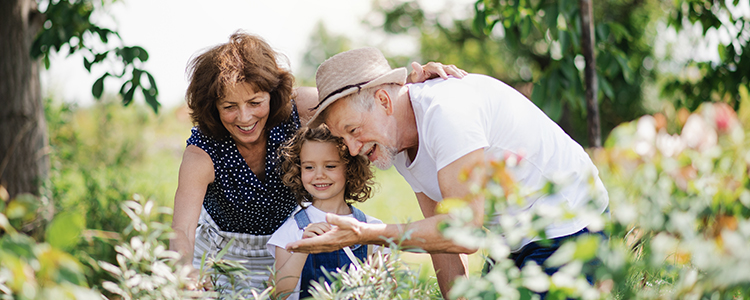
The other night, my father and stepmother spent the night at my house babysitting my three children.
\nI desperately wanted the experience to go well so they would be willing to babysit overnight again, giving my husband and me a much-needed break. To my delight, they all had a wonderful time together.
\n \nMy son introduced my father to the Iron Man movies, and my stepmother and middle daughter cooked and baked together. My oldest daughter showcased her artistic abilities, displaying her various art projects for them to admire.
\nWhat are the benefits?
\nAfter the grandparents had left, I reflected on the mutual benefits that all parties received from the visit. Spending time with grandchildren can help to decrease symptoms of depression in older adults and increase the time they spend doing community activities (like when they came to see my daughter’s theatre performance).
\nIn addition, playing with grandchildren or doing an activity with them (e.g., going for a walk or playing catch) can increase the level of physical activity in a grandparent’s life.
\nGrandparents are not the only ones who benefit from the experience. Having positive interactions with their grandparents can also help improve mental health and increase helping behaviors in children.
\nMy parents noticed this helping behavior firsthand as they delightfully told me about my daughter preparing a bagel with cream cheese for her grandpa. Grandparents can also be excellent sources of knowledge and information, sharing stories about family history, the family’s culture, and life lessons.
\nFinally, it takes a village, and a grandparent who is a trusted caregiver may provide some much-needed respite for busy parents, helping to improve the family’s overall well-being.
\nIs there a downside?
\nTo make these experiences enjoyable and beneficial, it is crucial for the time together to be voluntary and for neither side to feel forced or obligated. In fact, studies have reported when grandparents are tasked with too much care of their grandchildren, the mental health outcomes are not favorable for the grandparent or the grandchild. Keeping this in mind will help grow positive relationships between grandparents and their grandchildren.
\nSome activity ideas to help promote connection between grandparents and grandchildren:
\nWhat about grandparents who don’t live nearby?
\nConnecting with grandparents who live in a different city can be challenging. However, children can still have a relationship with their grandparents, even if most of it is remote. Kids and grandparents can become “pen pals,” sending each other letters, little notes, and drawings.
\nDepending on how tech-savvy both parties are, parents can help facilitate regularly scheduled phone calls or video calls between grandparents and grandchildren, where they can even play online games together. Sometimes phone or video calls with young children can be tough, and it helps grandparents to engage them in a topic they find interesting (e.g., “Tell me about all of your Pokémon cards!”) and to keep the calls short.
Josée is a registered psychologist with Flutterby Psychology (flutterbypsychology.com) in Okotoks, AB. She specializes in working with children from newborn to age 12, offering counselling in areas such as anxiety, social issues, ADHD, Autism, behavioral concerns, emotional regulation, divorce or separation, and trauma. In addition to counselling, she also provides consultation services to parents.
\n\n
References
\nBuchanan, A., & Rotkirch, A. (2018). Twenty-first century grandparents: Global perspectives on changing roles and consequences. Journal of the Academy of Social Sciences, 13(2), 131-144. https://doi.org/10.1080/21582041.2018.1467034
\nKakunje, A. (2024). The important role of grandparents in a child’s development. Archives of Medicine and Health Sciences, 12(2), 141-142. https://doi.org/10.4103/amhs_253_24
\nKochli-Hailovski, T., Marai, I., Lorber, A., & Cohen, M. (2021). Providing regular grandchild care: Grandparents’ psychological and physical health. Geriatric Nursing, 42(1), 173-180. https://doi.org/10.1016/j.gerinurse.2020.07.008
\nYang, X., & Yin, D. (2022). The protective effect of caring for grandchildren on the mental health of the elderly: A structural equation modeling analysis. International Journal of Environmental Research and Public Health, 19(3), 1255. https://doi.org/10.3390/ijerph1903125
\n\n
See our related articles:
\n
Calgary’s Child Magazine © 2025 Calgary’s Child